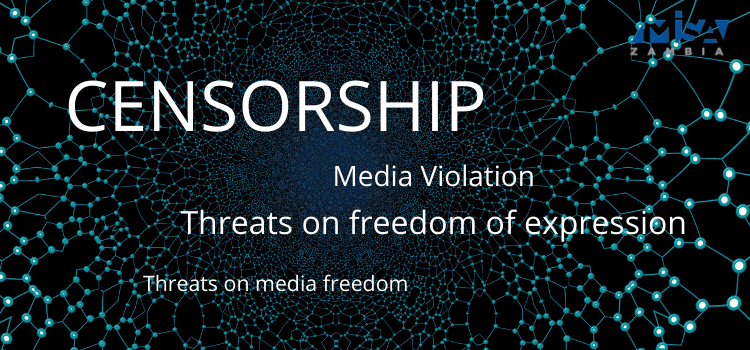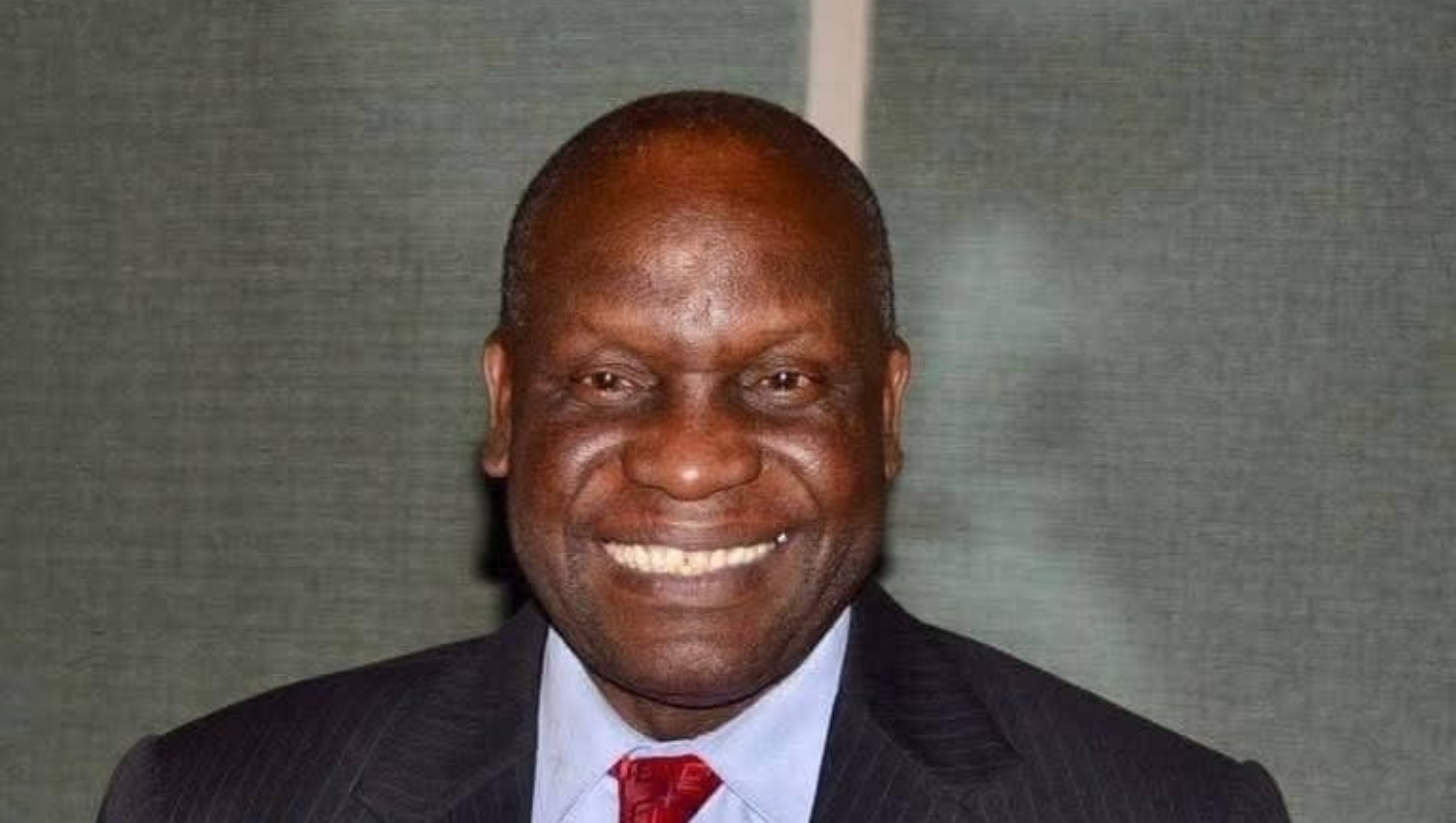MISA Zambia is concerned with the persistent acts of censorship on the media and general citizenry in the country.
Speaking in a statement, MISA Zambia Chairperson Hellen Mwale says while media freedom and freedom of expression violations reduced in 2020 compared to 2019, acts of censorship remain a concern for the institution as they stood at 10 in 2020 and 13 in 2019.
However, Hellen Mwale remains hopeful that acts of censorship will be stemmed in the year 2021 as Zambia heads to the polls and in subsequent years as it seems not to go reduce drastically.
Find below the statement issued.
REDUCTION IN FREEDOM OF EXPRESSION VIOLATIONS GOOD, MORE ACTION NEEDED ON CENSORSHIP – MISA ZAMBIA
For Immediate release
4th January 2021
Lusaka– MISA Zambia is happy that media freedom and freedom of expression violations reduced in 2020 compared to 2019.
However, the organisation is concerned with the persistent acts of censorship which stood at 10 in 2020 and 13 in 2019.
According to reports compiled by MISA Zambia, the year 2020, saw MISA Zambia record 82 media freedom and freedom of expression reports which was less compared to 2019 which recorded over 100 reports.
Of the over 100 reports, 36 were severe cases in 2019 and impacted freedom of expression and media freedom.
However, in 2020, 17 cases were severe and these included media censorship which was the highest number of incidents that violated media freedom and freedom of expression standing at 10 cases, while second highest were those of threats to the above stated freedoms at 3 and detention of media personnel which stood at 3 as well.
Further, one journalist was assaulted/beaten while one case of victory was recorded in 2020. In the victory case, Grace Lungu won a court case on 6th April, 2020 after the PF cadre known as Frank Mwale who attached her on her way to cover the Mukomba Ward bye-elections in Ludanzi District on 12th February, 2019 was convicted to four years imprisonment.
Following these statics above, it is clear that in 2020, censorship capped violations against the media in Zambia. However, it must be mentioned that there has been a reduction of media violations compared to 2019, mainly because there have been more engagement meetings between the media and political parties and the police over the media attacks by MISA Zambia and institutions like the Independent Broadcasting Authority.
The media environment in the period under review was constrained by political attacks and intimidation of media outlets and practitioners alike. These included attacks on Mafken radio in Mufulira as well as the illegal closure of Pasme radio in Petauke by the district commissioner, among other occurrences. These acts of censorship impacted media freedom and freedom of expression and this level of censorship violates press freedom and denies the public access to information altogether.
Intimidation often instills fear in journalists and suspension of broadcast licenses further narrows the space for media freedom and access to information. This, in turn, stifles freedom of expression and negates the space for citizen’s meaningful participation in governance processes despite Zambia being a democracy.
Freedom of expression is a universal human right. It is not the prerogative of the politician; nor is it the privilege of the journalist; neither is it a right for some members of the public to attack the media.
Freedom of expression is inevitable for exchange of information and ideas among human beings and must therefore be protected by all stakeholders including political parties and the state.
Moreover, it is a right that journalists cannot do without. In their day-to-day work, press men and women exercise every citizen’s right to free speech, whilst the media aid citizens to express themselves and access information which they so need to make informed decisions and hold their governments accountable; which is a requirement for good governance to flourish. Moreover, media freedom is provided for in the Zambian Constitution.
In 2020, journalists, and citizens alike, were verbally threatened, and in some instances, prevented from covering government or activities of the ruling party. At the same time, the government rejected collaborations with Prime TV, and eventually cancelled the license of the TV station.
The cancellation of Prime TV license has left a deep depression on the history of the Zambian media. It has also instilled fear in other media houses from carrying out their duty diligently, fearing their licenses being suspended or cancelled altogether; hence, disrupting free flow of information, and ultimately, depriving Zambian citizens access to information as self-censorship is creeping into newsrooms.
Meanwhile, the period under review also recorded some positive developments, including the approval of the Zambia Media Council (ZAMEC) Bill by the Zambian Cabinet, which could benefit the media fraternity by providing protection and improving professional standards.
Further, the year 2020 also saw the approval of the Media Development Policy and the Government Communication Policy, which are believed to go a long way in developing the media sector in Zambia.
The government policy provides, among others, a framework for access to information legislation, and defines the roles of different participants in government-related communication to ensure effective and coherent communication. The Media Development Policy, on the other hand, provides, among others, expansion of the media industry, both public and private.
On the legal/policy front, the approval by the Zambian Cabinet of the Media Development Policy and the ZAMEC Bill is a positive development in the media sector as a whole. This is because the media bill (ZAMEC) promises protection and improving professional standards in the sector.
However, it is hoped that the government exercise impartiality and professionalism in the implementation of the Media Development Policy, and not use it to silence or intimidate the media in Zambia by developing more regulations constraining media operations.
It is further hoped that the acts of censorship will be stemmed in the year 2021 as Zambia heads to the polls and in subsequent years as it seems not to go reduce drastically. In 2019, MISA Zambia recorded 13 acts of censorship against the media while 6 journalists were detained and 6 were assaulted respectively. While the figures for 2020 show a reduction, the acts of censorship are a source of concern.
Lastly, the year 2020 closed on a sad note as the Access to Information (ATI) bill was not enacted while the Zambia National Broadcasting Corporation (ZNBC) and Independent Broadcasting Authority (IBA) acts were not revised to make ZNBC accountable to the public through the IBA having authority over ZNBC as is the case for private broadcast media in Zambia
Issued by Hellen Mwale
Chairperson – MISA Zambia









